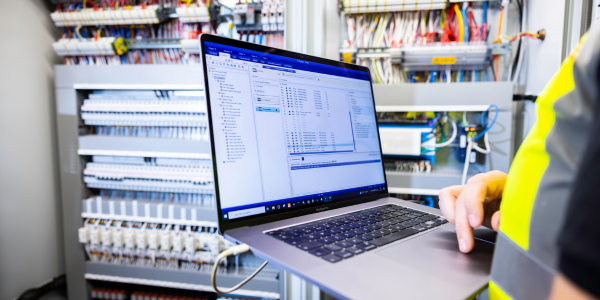Building management systems are used throughout the world to help manage the day-to-day running of buildings of all shapes and sizes. These computer-based systems can monitor all types of building services and electrical and mechanical equipment, such as heating, lighting, ventilation, air conditioning and security.
There are several types of building management systems which can be used in a building and the type you choose depends on a series of factors, such as the size of your building, the size of your budget and what it is that you need your building management system to do.
The benefits of choosing the right building management system include the potential for the following:
- Cost efficiency
- Energy savings
- Protection against cyber security attacks
- Enhanced staff wellbeing and comfort
- Greater business productivity
- Improved reporting and information management
Cost savings and energy efficiency
Two of the biggest concerns for most businesses nowadays are cost savings and sustainability. They often come hand-in-hand because saving energy can also save on energy bills. Up-to-date, modern building management systems are programmed with energy efficiency in mind. This makes them an excellent contributor to achieving sustainability goals, while giving you every opportunity to keep your energy costs as manageable as possible.
Enhanced security
When a building management system is properly maintained, updated to the latest standards and managed well, it will be able to protect your business from cybersecurity attacks, such as malware, ransomware, Denial of Service (DoS) attacks, data breaches and cyber fraud.
In addition to being fully equipped to tackle cyber attacks from the moment it is installed, an up-to-date building management system will also be able to evolve in order to tackle most new cyber threats as and when they arise.
Happy staff = greater productivity
A little known aspect of a building management system is its adaptability. A BMS can change the temperature in a building according to the seasons and external weather conditions, identify whether an area is in use and therefore whether heating or air conditioning is required, and even monitor air quality to help protect occupants from airborne particles, including pathogens.
This adaptability improves occupant comfort, which can, in turn, improve productivity within most businesses. Meanwhile, reporting functions in modern building management systems also allow users to identify the potential for further changes and savings.
Why not ask a member of our team today about how we could find the right building management system for your business needs?
Cube Controls is an established and experienced supplier of Building Management Systems, specialising in the design and set up of bespoke environmental and energy control programmes for commercial buildings and property.
To find out how Cube Controls can support you at all stages of design and consultancy, installation and modification and maintenance of your building management systems contact our expert and friendly team on 01903 694279 or sales@cubecontrols.co.uk.




